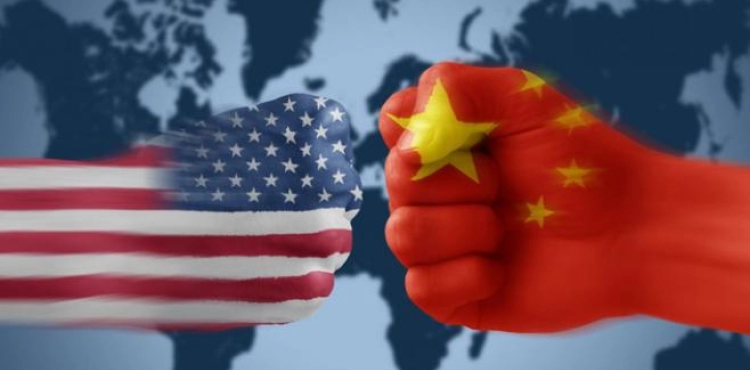Beijing _ Agencies
Washington and Beijing are resuming their negotiations, which have been stalled for weeks at the height of their trade war, with China declaring a senior official to be sent to the United States by the end of August.
The two major powers have exchanged tariffs on goods with tens of billions of dollars since their last high-level meeting held in June, raising fears of repercussions on the world economy.
But the dialogue will resume. Chinese Vice minister of Commerce Wang Shuowen will meet with US Assistant Secretary of the Treasury for international trade David Malbasses at the invitation of the United States, the Chinese Ministry of Commerce said in a statement.
"The Chinese side reiterates that it opposes unilateralism and trade protectionism, and does not accept any unilateral measures to restrict trade," the statement said, referring to the United States, which launched the standoff by imposing heavy tariffs on Chinese products.
"China welcomes dialogue and communication on the basis of reciprocity, equality and integrity," the statement said.
In May, Chinese Deputy Prime minister Liu had held talks in Washington with US Treasury secretary Stephen Manchin. Later, Liu was received in Beijing by US Commerce secretary Wilbur Ross on June last June.
However, the talks failed to ease the tension. After Washington imposed a 25 percent import charge on washing machines, solar panels, steel and aluminium, equivalent to 34 billion US dollars worth of American products, it will also impose, as of 23 August August, fees on another 16 billion US dollar package of products.
The United States has threatened to charge an additional 200 billion dollars worth of Chinese goods as of September, raising to 250 billion the value of Chinese products that will be levied on US tariffs.
The Chinese authorities announced on July 6 that they would include US $34 billion worth of goods, mainly pig and soy, and on August 8, they added goods worth 16 billion dollars, including coal, medical tools and waste. July
"It is difficult to predict what the negotiations will lead, but the vision of the two countries is to agree on a positive sign," said Makoto Singsuko, an analyst at the Institute of the "Tokai Tokyo Reserch Instittet". "What would have been a meeting if they were not determined to settle the problem," he added.
Harry Lu, an analyst at the Bank of Macwari, sees that the Chinese and the Americans can discuss concessions by Beijing, i.e. increasing the imported US goods and opening up the market further, as well as promoting American intellectual property rights.
"Both countries will first try to break the ice," said Hu. They will seek to appreciate each other´s strengths and see where things can go. " He noted that the meeting was held at a lower level than previous meetings.
Chinese officials have confirmed that the tariffs have not yet affected their country´s economy, as Chinese exports exceeded expectations in July last July.
"We still have sufficient conditions and capabilities to deal with the current trade disputes," said Kong Liang, spokesman for China´s economic planning agency.
Analysts believe that the impact of the trade war can be seen in the results of August month.
Trump said the trade wars were "easy to win." He threatened to impose additional tariffs on almost all Chinese exports, equivalent to 500 billion dollars, to reduce the US trade deficit with Beijing, which amounted to 375 billion dollars in 2017, according to Washington figures.












